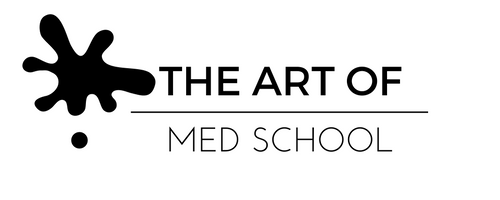The most precious thing that you have in med school is time. There is a tremendous amount of material to cover and you only have so much time to do it in. The phrase you hear over and over is “high yield.” Its simply the idea that everything needs to be as productive as possible in order for you to find the success you’re looking for.
I don’t want to spend 100% of my time studying. It’s not healthy or productive to do so, plus you know I want to go snorkeling, like every chance I get. Or spend some time at the coffee shop playing dominos with the locals. So, for me, that plays a huge motivator in making my study time as “high yield” as possible.
Everyone has their own learning process, so be doing whatever is right for you, but I thought I’d throw out my current plan for learning. It seems to make sense for now, but we’ll see down the road if I end up changing it. I’ll tackle individual study sessions in another post. For now, we’re going to take a bigger picture approach.
Before Class
It is so important that when you go to lecture that you already have at least a precursory idea of what is going on. There are a few YouTube channels, like CrashCourse and Kahn Academy, that I’ll watch pre-lecture. Will they teach me everything I need to know about a topic? Of course not. The goal is for me to get a broad understanding before we go into lecture. That’s all.
I’ll also do cards in Picmonic. Again, just good to be hearing the terms and getting a general understanding. It also puts the topic I’m about to learn into my Spaced Repetition Quiz so those Pics will start coming up for me.
Last, if there is any reading or pre-class type homework that I can do for the topic, I will. This starts to work on deepening my understanding of a topic, so if I feel like I’m not getting it right away, I’ll wait until after class. I would rather spend my time studying things right than to fumble my way too much. Totally person, class and topic dependent, though.
In Class
Actively listen in your class! Take notes, ask questions, be engaged! Use the Cornell Notes template to help keep yourself organized. Make sure you make special note of any clues your instructor might give you like “You’re going to need to know this” and “This is important stuff.” I make very visual notes that have lots of arrows go from one part to another, doodles that represent ideas, things like that.
And since we’ve done our pre-studying, we can ask questions that clear up muddy ideas instead of spending our time trying to wrap our heads around the concept in the first place. Keep your notes organized, too. You can take a look at our binder guide for ideas on how to do that.
Immediately After Class
As soon as I’m done, I take a few minutes to go over everything that we just did. I can add any details to my notes or even rewrite them if needed. You can also use a different ink pen or highlighters to help annotate your notes, if needed. I like to make sure I am drawing special attention to anything that was mentioned as being extra important.
If you have the availability, this is also a good chance to quickly recap the lecture with your study group or whichever classmate you choose. Run through the idea so that you’re actually saying it out loud, and you get to correct each other in case there was a misunderstanding.
Last, I flag my new topics in Firecracker so I can immediately start reviewing it and I annotate my First Aid. This is a lot to get done right after class. Sometimes I have to find time later in the day, but I try to do it as soon as I can when everything is fresh in my mind.
Later
So, most things are not clear right away. Giving over my notes a few times, keeping up with Picmonic and Firecracker, will help cement things and usually clear them up at the same time. I’m a big believer in studying the cheat sheets. Make it boiled down and get the basics. The rest can come after that. Any facts that I feel are important, but are being missed by my study tools, I’ll make notecards for. I use Anki for that because it’s spaced repetition and I can do it all on my phone.
For concepts that I’m working on, you’ll probably end up seeing a blogpost or a podcast episode on them. This is actually an adaptation of the Feynman technique. Essentially, when learning a concept, you write out an explanation as if you were talking to someone who is unfamiliar with it. Putting it into your own words requires you to understand to a greater degree than just regurgitating. If you run into a portion that you don’t know how to explain, then you know what you need to go back and work on.
Hopefully, all this gives me time to prep for the next day! It’s a busy schedule, so it’s important not to let yourself fall behind. Pick and choose what you need to work on. It is very easy to overstudy and burn out. Sometimes, the best thing you can do for your studying process is go to the beach and give yourself some mental health time.
